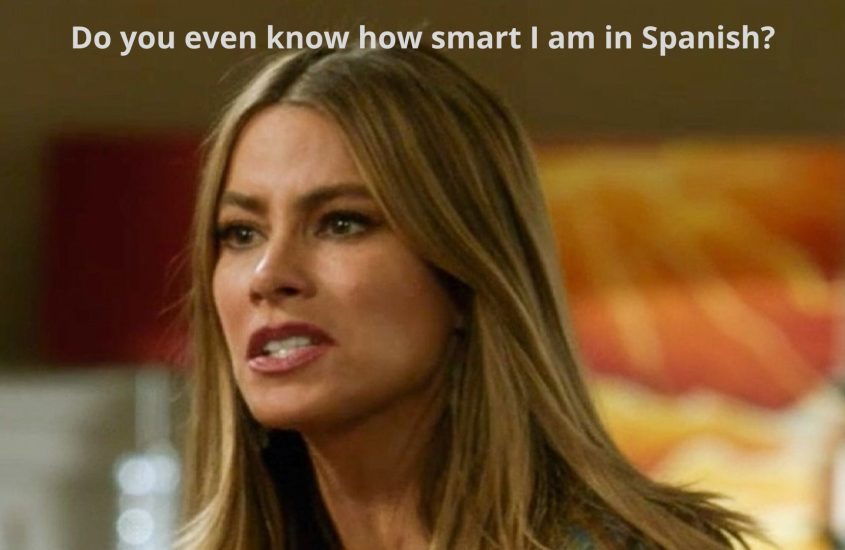To be yourself in another language

I have hardly watched Modern Family but there is a scene in one of the episodes that always comes to my mind in many moments of my life and I am sure plenty of my readers will feel the same way too.
In a couple’s argument, actress Sofía Vergara, portraying a Colombian woman who lives in the US, asks her American husband “Do you even know how smart I am in Spanish?”.
You have no idea how many times I have asked myself that same question when I am speaking a language that is not my mother tongue. Sometimes I feel like I am playing a role when I switch languages: I have a different voice and intonation, I use other catchphrases (you know, really?, aber klar, natürlich…) that are not my own, that I have copied from a movie or that I think sound cool, without truly knowing if those words really represent me, if they have a connotation I am unaware of, if the other person is interpreting me the way I want, if they understand me completely, if they really know who I am.
Can we be ourselves when we speak another language? Do people know us 100% when we don’t express ourselves with them in the language we feel most comfortable with—our mother tongue?
When I speak another language, and therefore with someone from another culture, I can’t rely on the cultural references that I usually use. I have to find others; I can’t say what I would say to a Spaniard because in their culture I could sound rude or too direct. I have to find the middle ground, the common globalized ground that is understood everywhere without misunderstandings. If that actually exists.
I have friends with whom I’ve never spoken in my native language, and sometimes I surprise myself by being a different person with them. The reality is that I can’t fully be myself.
In German, I come across as sweeter, more innocent, and polite. It’s my third language, and I lack the fluency to feel confident, express everything I think, make jokes, use swearwords, and grasp subtleties and nuances. So, I feel that I’m perceived with tenderness, and Germans often want to help me—something I usually aim for when I speak with them.
In English, I’m more fun, flexible, and cheerful. I always seek to make others happy, perhaps because it’s the language I use at work, the one I use to ask for favors, persuade, and sell. I step into that role and interpret it perfectly. People admire me, laugh heartily at my jokes, and leave the conversation with a positive memory of me.
Am I truly like this in Spanish? I don’t expect to answer the big question of who I am in this short post but, if I am anything, I am what I am in my mother tongue.
And what about you?




